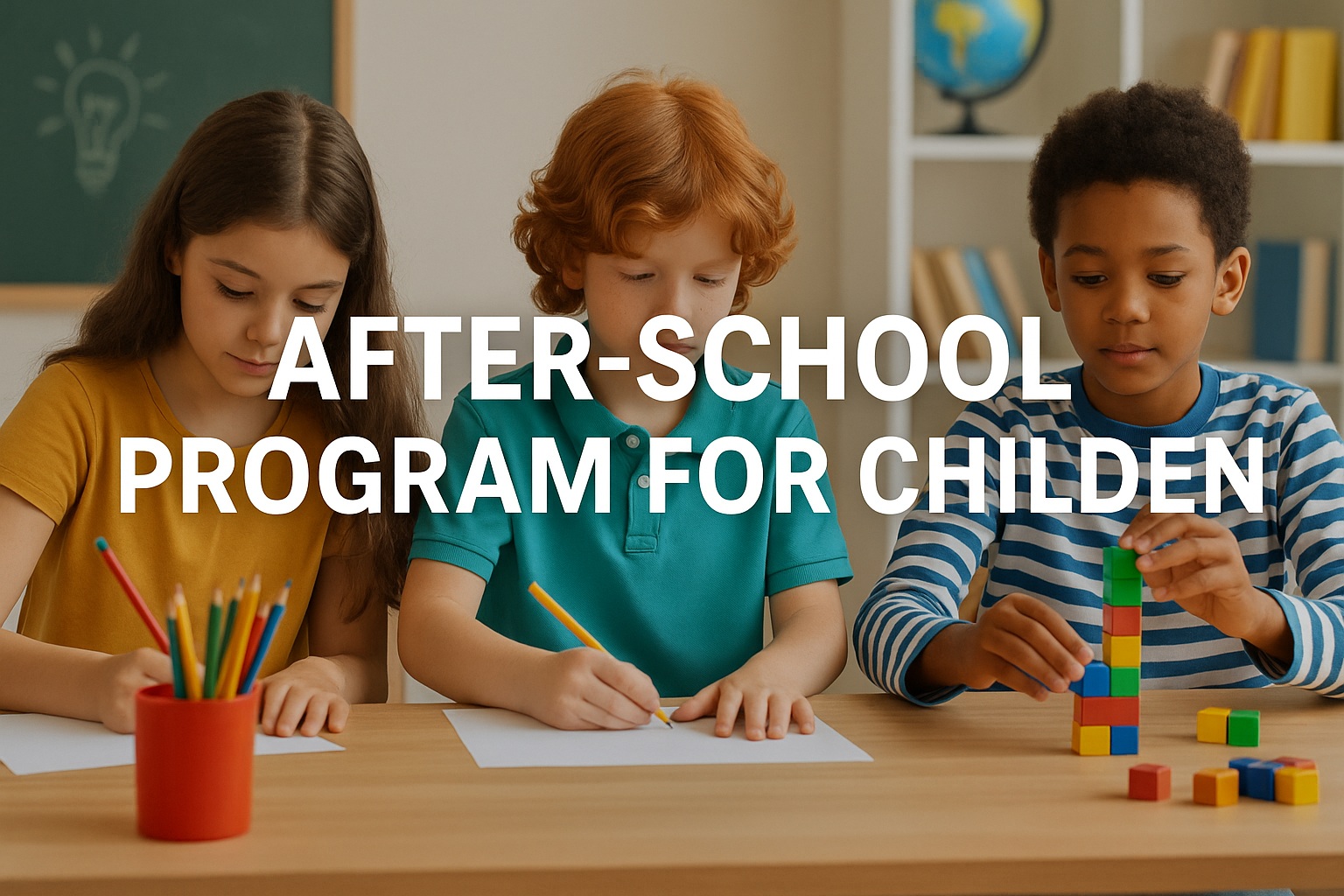Finding the right after-school program for your child can make a big difference in their development and happiness. After-school programs are not just a way to keep children occupied until parents finish work—they’re valuable opportunities for learning, socialising, and discovering new interests.
Whether you’re looking for academic support, creative outlets, or physical activities, choosing a program that suits your child’s unique personality and needs is key.
Why After-School Programs Matter
After-school programs provide a structured yet relaxed environment where children can continue learning in a less formal way. They help children:
- Improve academic performance through tutoring or homework support
- Learn new skills, from coding to art or playing a musical instrument
- Stay physically active through sport and fitness programs
- Build social skills and make friends outside the classroom
- Gain confidence by trying something new and succeeding
Good programs are designed to be both fun and educational, giving children a chance to explore different areas of interest.
Consider Your Child’s Interests and Personality
Every child is different, so the first step in choosing the right after-school program is understanding what your child enjoys and how they learn best.
- Is your child creative? Look into programs that offer visual arts, music, or drama.
- Do they love being active? Sports teams, dance classes, or martial arts could be ideal.
- Are they tech-savvy? Robotics, coding clubs, and STEM-based activities might capture their interest.
- Do they need help with schoolwork? Academic tutoring or study groups can provide that extra support.
Some children thrive in quiet, small-group settings while others love the energy of team-based activities. Be sure to talk with your child about what they’d like to try and be open to their feedback.
What to Look for in a Quality After-School Program
When comparing programs, it’s helpful to evaluate a few key aspects:
- Qualified Staff
The people leading the activities should have experience working with children. Ask about staff-to-child ratios and whether the team has any relevant qualifications, such as teaching experience, first-aid certification, or a background in child development.
- Structured but Flexible Schedule
A good after-school program has a clear routine but also allows room for free play or relaxation. Kids often need some downtime after a full day at school, so the balance between structure and flexibility is important.
- Safe and Welcoming Environment
Check that the space is clean, secure, and welcoming. Ask about the sign-in/sign-out procedures, emergency plans, and how the staff handles behaviour management or conflict resolution.
- Enrichment Opportunities
Look for a program that goes beyond just supervision. Enrichment activities like science experiments, art projects, or group games can make learning fun and meaningful.
The Benefits of After-School Programs at Private Schools in Melbourne
Many private schools in Melbourne offer high-quality after-school programs that reflect the school’s commitment to holistic education. These programs often include:
- Academic tutoring or extension programs
- Music ensembles, theatre clubs, and visual arts workshops
- Competitive and non-competitive sports
- Language clubs and debating teams
- Community service or leadership initiatives
Because private schools often have strong links between their classroom teaching and after-school activities, students benefit from consistent values, skilled staff, and access to quality facilities.
Parents who enrol their children in private schools can often choose from a wide range of after-school options, all designed to complement the school’s academic program while also allowing students to follow their personal interests.
How to Narrow Down Your Choices
With so many after-school programs available, it can be hard to choose. Here are a few tips to help you decide:
- Visit in person: If possible, visit the program while it’s running to observe how children are engaged and how staff interact with them.
- Check feedback: Talk to other parents, read online reviews, or ask the school for testimonials.
- Try a trial period: Some programs offer a free trial session so your child can test it out before you commit.
- Evaluate progress: After a few weeks, check in with your child to see how they’re feeling. Are they excited to attend? Are they learning new things or making friends?
It’s important to remember that what works for one child may not work for another. It might take a few tries before you find the right fit, and that’s completely okay.
Supporting a Healthy Routine
While after-school programs offer many benefits, it’s also important to make sure your child has enough time for rest, family, and unstructured play. A packed schedule can lead to burnout, even in young children.
Try to find a healthy rhythm that balances school, activities, homework, and downtime. If you notice signs of fatigue or stress, consider scaling back or reassessing the type of activity your child is involved in.
Choosing the best after-school program involves more than just convenience—it’s about supporting your child’s growth, happiness, and individuality.
The right program will not only keep your child engaged after school but also help them build new skills, discover talents, and develop lifelong passions!

